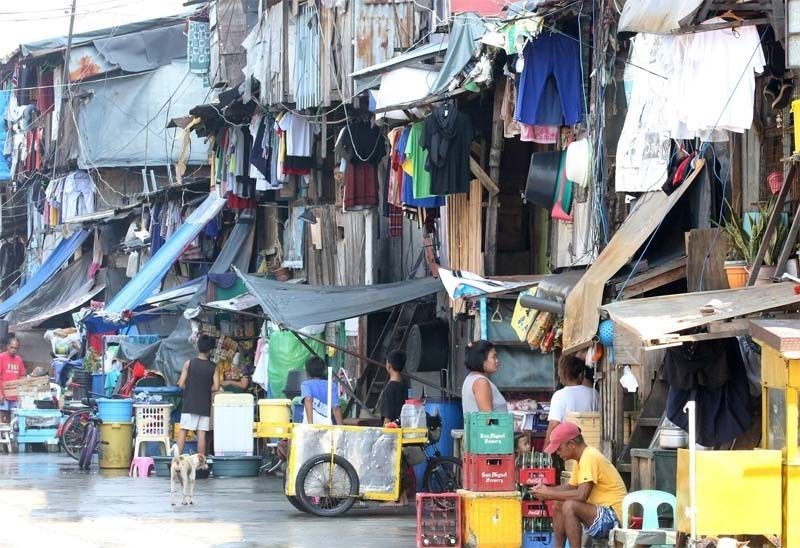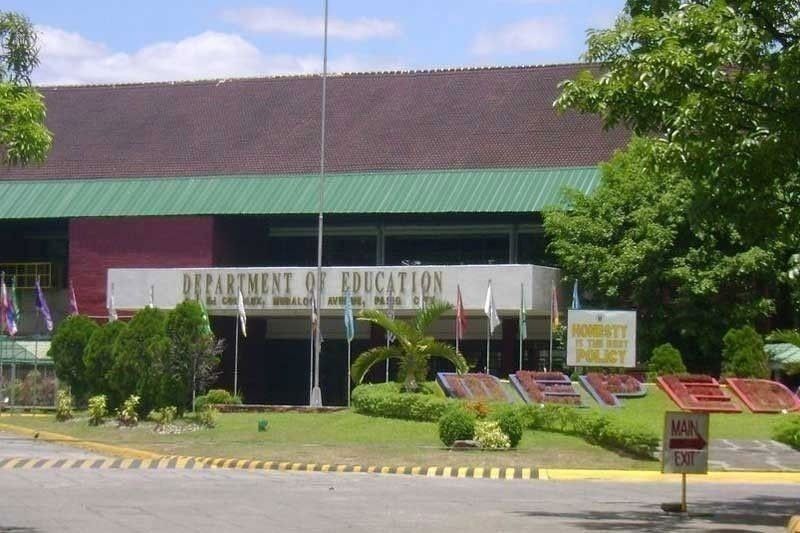
Upgrade to High-Speed Internet for only ₱1499/month!
Enjoy up to 100 Mbps fiber broadband, perfect for browsing, streaming, and gaming.
Visit Suniway.ph to learn
MANILA, Philippines — Surveys have consistently shown that most Filipinos favor candidates who vow to defend the country’s sovereign rights in the West Philippine Sea.
But on the campaign trail, few candidates have made the country's maritime rights a centerpiece of their platforms — even after China's provocative flag-raising at Sandy Cay near the Philippine-occupied Pag-asa Island last month.
With just days left before millions cast their votes for new senators and thousands of local officials, the longstanding maritime dispute between the Philippines and China appears to have been largely eclipsed by economic concerns, particularly underemployment and the rising cost of goods, and the dramatic political feud between the Marcos and Duterte camps.
The muted rhetoric on sovereignty, for political scientist Cleve Arguelles, may reflect a campaign season shaped more by pressing economic anxieties than the Philippines' territorial dispute with China.
"The West Philippine Sea is undoubtedly an important issue for many Filipinos. Our surveys consistently show strong public support for defending Philippine sovereignty and pushing back against China's incursions," Arguelles — also founder of survey firm WR Numero — told Philstar.com.
"But like all political issues, it competes for attention — and right now, it's losing that competition to more immediate concerns like food security, inflation and jobs," he said.
Sandy Cay: An incident with little campaign impact
In late April, Chinese state media reported that China's Coast Guard had "implemented maritime control" over Sandy Cay, an uninhabited sandbar just three kilometers from Pag-asa Island, where around 300 Filipino civilians and military personnel are stationed.
State media reports claimed China Coast Guard officers had "exercised sovereign jurisdiction" in Tiexian Jiao — the term China uses for Pagasa Cay 2 — in mid-April.
The Philippine government swiftly responded with their own mission, sending Navy, Coast Guard, and police personnel to plant the Philippine flag on the same features and debunk China's claims of seizing control.
National Security Council Assistant Director General Jonathan Malaya dismissed China's claims as a lie designed to intimidate the Philippines and spread disinformation among its citizens and the international community.
Among the dozens of senatorial candidates vying for seats in the upcoming polls, the incident prompted strong statements from only a handful.
Yet among the dozens of senatorial candidates vying for seats in the upcoming polls, the incident prompted strong statements from only a handful. Sen. Francis Tolentino — part of the Marcos-backed Alyansa slate, who authored legislation defining the country's maritime boundaries — was among the most vocal.
The sitting senator filed a resolution calling for an investigation into the incident. "The illegal seizure of Sandy Cay by the China Coast Guard is an outrageous assault on Philippine sovereignty... This brazen intrusion must be met by the strongest diplomatic and defensive measures," he said.
Meanwhile, human rights laywer Chel Diokno, who is running under Akbayan party-list as first nominee, condemned China's actions on Sandy Cay. Diokno said China's actions were "unlawful" and a "clear violation of international law."
Two other members of the Alyansa slate, Erwin Tulfo and Ping Lacson, did not issue statements specific to the Sandy Cay incident. However, both have previously criticized China's broader pattern of aggression in the West Philippine Sea.
Tulfo, a top polling senatorial candidate, had warned voters against electing pro-China candidates in Congress. Lacson, a former senator and police chief, urged voters to be wary of China's alleged attempt to interfere with the midterm polls. Earlier, he said the Philippines should pursue more alliances with like-minded countries in response to flaring tensions with China in the South China Sea, according to a report.
Why the silence?
The limited response to the Sandy Cay incident from most candidates points to a broader reluctance to center the South China Sea dispute in their campaign messaging, despite polling that shows strong voter interest in candidates who will defend the country's territory.
A survey by WR Numero in February shows that at least eight in 10 voters support candidates who vow to assert the Philippines' territorial rights against China's aggressive actions in the disputed waters.
Arguelles believes there is voter confusion about candidates' actual positions on China.
"Even though there are candidates identified as pro-China — those who favor appeasement, believing that conceding to some of China's claims might reduce tensions — we don't see voters punishing them at the polls," Arguelles said. "In fact, according to our survey, most voters struggle to clearly distinguish which candidates are pro-China and which are not."
"Most voters struggle to clearly distinguish which candidates are pro-China and which are not."
This ambiguity creates what Arguelles describes as a political environment where candidates, especially those with histories of supporting accommodation with Beijing, have little incentive to stake out clear positions that could alienate voters on either side of the issue.
"While the Sandy Cay incident spiked national headlines, it hasn’t fundamentally reshaped the election narrative. For now, fish and rice issues still dominate the race," Arguelles said.
Closer to the gut. The impact of economic priorities on voter perspectives is especially pronounced among the most vulnerable Filipinos.
A Social Weather Stations survey commissioned by the Stratbase Group in April found that while 78% of Filipinos prefer candidates who will assert the country's maritime claims, that figure drops significantly among Class E voters — those living below the poverty line.
Among this group, 41% said they would vote for candidates who do not plan to assert the country's maritime claims. This is far higher than the national average of 25%.
But Arguelles said the Philippines' predicament in the defense of its maritime territory "isn't just about sovereignty in the abstract."
The Philippines' predicament in the defense of its maritime territory "isn't just about sovereignty in the abstract."
"It's deeply connected to everyday concerns like food security, especially for our fisherfolk, and even energy security, given the area's vast oil and gas reserves that could help stabilize prices and supply," Arguelles explained.
"But unfortunately, these links aren't apparent to most voters. My sense is there's still a big gap between national security conversations and how ordinary voters perceive their day-to-day struggles," he added.
Philstar.com reached out to candidates who have not issued statements in response to the Philippines' defense of its sovereign rights in the West Philippine Sea.
Sen. Bong Go, who is running for re-election as part of the PDP-Laban slate, stressed the importance of standing firm in protecting the Philippines' sovereign rights.
"What is ours is ours! Dapat na ipaglaban natin kung ano ang atin (We must fight for what is ours)," Go said in a statement sent to Philstar.com, adding that maritime tensions affect not just territorial claims but also the livelihoods of coastal communities.
Go said the Sandy Cay incident highlights how ordinary Filipinos often bear the brunt of regional instability. The senator "urged all parties to exercise restraint and pursue peaceful, diplomatic solutions to disputes, while reaffirming that the Philippines must continue asserting its rights by international law."
Meanwhile, Kabataan Partylist, through its first nominee Renee Co, called for "the demilitarization of the West Philippine Sea, and the immediate exit of Chinese troops to stop the war games with the United States and allies for tensions to subside."
Co told Philstar.com that her party "asserts the implementation of international laws, such as the UNCLOS that defines Philippines' exclusive rights, and the Hague Ruling that declared China's claims relating to the nine-dash-line are without lawful effect."
South China Sea as a 'wedge' issue
The maritime sovereignty issue is further complicated by its connection to the ever-growing chasm between the Marcos and Duterte camps.
Marcos had earlier attempted to use the territorial dispute to differentiate his administration from that of former President Rodrigo Duterte, who maintained closer ties with Beijing.
During a February campaign rally, Marcos had hinted at candidates of the Duterte slate "applauding China and being happy when Chinese vessels water-cannon our Coast Guard ships, block our fishermen and steal their catch, and take over our islands."
In response to these campaign statements, Chinese Foreign Ministry spokesperson Guo Jiakun said during a February 12 press conference that "China opposes exploiting the South China Sea issue for political manipulation."
China's embassy in Manila had earlier urged candidates to refrain from using the country's issues with China to "boost their election prospects."
"We noticed the attempts of some politicians to play the so-called China card to serve their political self-interests and boost their election prospects before the midterm election," the embassy said. "Such attempts are despicable and doomed to failure."

 1 month ago
49
1 month ago
49



